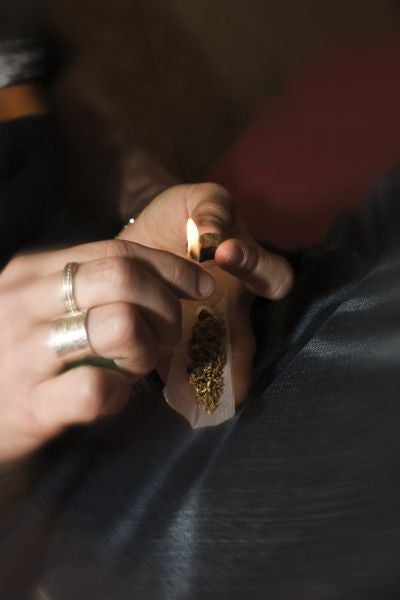Cannabis could help combat substance abuse

In the fight against substance abuse, smoking marijuana might be an effective weapon, according to a University of California Berkeley researcher.
In a study of over 350 cannabis users at Berkeley Patient's Group, a cannabis dispensary, 40 percent said they used the drug to control their drinking. Sixty-six percent also admitted to using cannabis as a replacement for prescription drugs, and 26 percent said they used it as a substitute for other, more potent and illegal drugs.
Substituting cannabis for alcohol could address heavy alcohol consumption in places like the UK because people might substitute alcohol with a less deadly drug and one with less adverse side effects, according to researcher Amanda Reiman.
"Beyond the popularity of medical cannabis, substituting cannabis or other drugs for alcohol has been described as a radical alcohol treatment protocol, " Reiman wrote in the study, which was published December 3 in BioMed Central's open access publication Harm Reduction Journal.
Sixty-five percent of the people involved in the study also reported using marijuana as a substitute for alcohol, illicit or prescription drugs because of its less harmful side effects; 34 said percent it was because there was less withdrawal potential; and 57.4 percent said they used the drug because it provided better symptom management.
The findings of the study should be a call for increased research into the medical benefits of marijuana, according to Reiman:
"The economic hardship of the Great Depression helped bring about the end of alcohol prohibition. Now, as we are again faced with economic struggles, the US is looking to marijuana as a potential revenue generator. Public support is rising for the legalization of recreational use and remains high for the use of marijuana as a medicine."
http://www.harmreductionjournal.com
Join our commenting forum
Join thought-provoking conversations, follow other Independent readers and see their replies
Comments
Bookmark popover
Removed from bookmarks